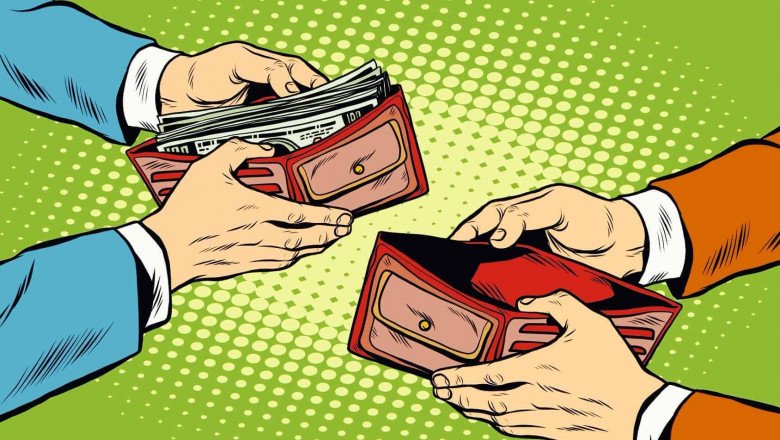1. Start with a no-spend day
A non-spent day is when you choose a date to not spend money. Of course, not spending money here means that you don’t buy online, don’t tea and coffee… only pay for essentials like rent, electricity…
This challenge can be a fun way to practice not spending money on unnecessary things. You will be surprised at what you can save by doing this challenge.
To succeed in taking on this challenge, calculate and choose wisely. If you’re someone who needs a morning cup of coffee to start the day, don’t start your challenge on a Monday, rather a day when you don’t have to go to work. Besides, fill your empty day with fun activities that don’t cost money. Chances are, you’ll rekindle a long-forgotten passion.
2. Automate savings
One of the easiest ways to accumulate savings is to automate deposits. With just a small step is to set up automatic savings every time an income is generated, you will not have to think about spending when you have money and easily build wealth.
3. Change the way you shop
Here are ways to spend less and still ensure quality when shopping:
Buy products from not-so-famous brands or from the store itself
You can have your favorite brands of prepared foods. It is not necessary to give up those favorite dishes, try to buy products such as spices, toilet paper, tissue paper, rice… from not-so-famous brands. You will most likely discover a new option that is more economical while maintaining quality.
Check cabinets and kitchens before you go shopping
Usually, we have a habit of buying new things rather than because our kitchen has run out of food. The change here is to build the habit of checking cabinets and kitchens before going shopping to know what you have. Cooking at home and making use of the food you have left is a great way to save time and money while shopping less often.
Make a list before you go shopping
Making a list of what you need is a way to help you shop more rationally, avoid getting caught up in things that are not really necessary. By planning your weekly meals in advance, you will be more proactive in shopping for essentials, limiting the need to travel many times.
Find products on the lower and upper shelves in the supermarket
The layout of products in supermarkets is not random, but often the result of surveys and research. We tend to choose the products on the shelf at our eye level and that’s why supermarkets often put the products they want our attention there. Lower priced items are usually located on the lower and higher shelves.
4. Adjust your spending habits

Along with tweaking the way you shop, you can make a difference by changing your spending habits.
Spend tracking
Keeping a record of how you’ve spent every penny will give you an overview of how you’re spending. You may be surprised by how much you spend on unnecessary things, even on places you don’t remember spending money on. You won’t be able to cut your spending without knowing where you’re actually spending your money.
Identify spending triggers
Spending triggers are the things that motivate you to spend money. It can be the urge to shop when you feel bored, can’t resist walking past a row of stores that have a sale… By identifying what motivates you to spend your money, you’ll be in control. better control of the situation, promoting effective savings.
Switch to using cash
Using cash makes you more aware of what you’re spending. Even counting money when making a purchase helps you be more conscious of your spending rather than simply handing out a card.
5. Clean up and simplify
Cleaning can be the key to unlocking your financial success. Get rid of any unnecessary items in your home. You will know which things you need to stop buying because they are not needed.
The next step is to keep your space clutter-free again, paying more attention to quality instead of quantity. You may have to spend more for a higher-quality shoe, but longer wear saves money per use. Don’t pile up your house with things that look cool but you won’t touch much.
6. Stop trying to keep up with trends

It feels great to own something that is being sought after by so many people. However, is that brief satisfaction worth the large amount of money that you have to spend, leading to financial difficulties in the future?
When the latest version of mobile phones or watches comes out, ask yourself if you really need it. Will you get a lasting benefit from purchasing the product? If you need a new device, check out other products with similar features that can still give you what you need for less.
7. Prioritize your health
Prioritizing your health will force you to make more positive choices with your money. Unhealthy habits like eating fast food and drinking too much alcohol can have negative effects on your health, costing you more in medical expenses later on.
at Blogtuan.info – Source: Eva.vn – Read the original article here





